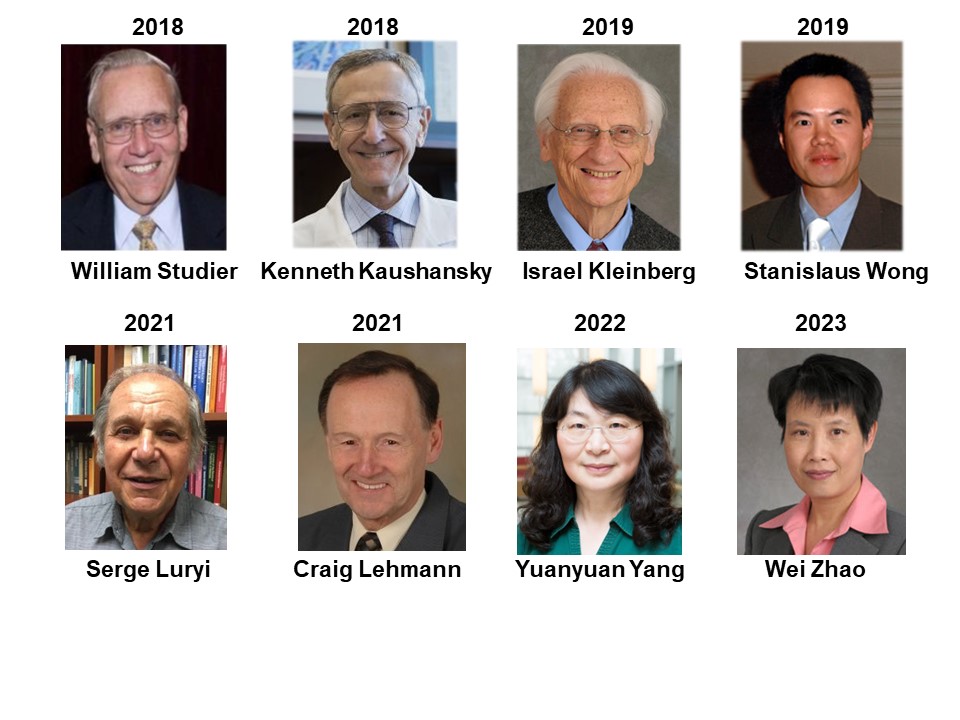
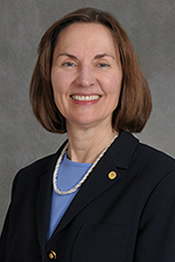 Dr. Esther S. Takeuchi received her B.S. from the University of Pennsylvania in Chemistry and History and
completed her Ph.D. in Chemistry at Ohio State University. She completed her post-doctoral
research at the University of North Carolina and the State University of New York
at Buffalo. Upon completing her post-doctoral research, Dr. Takeuchi was employed
at Greatbatch, Inc. in Clarence, NY where she conducted research on batteries for
unique environments, including implantable applications. She led the battery research
team and was involved in the development of several battery systems including the
lithium/silver vanadium oxide (Li/SVO) battery, which powers the majority of implantable
cardiac defibrillators (ICDs). Dr. Takeuchi began her academic career at SUNY Buffalo
where she held joint appointments in the Department of Chemical and Biological Engineering
and the Department of Electrical Engineering. Dr. Takeuchi was awarded the National
Medal of Technology and Innovation by President Obama (2009). She was inducted into
the National Inventors Hall of Fame (2011), elected as a Charter Member of the National
Academy of Innovation (2013), received the E. V Murphree Award and the Astellas Award
from the American Chemical Society and the Battery Division Technology Award from
the Electrochemical Society. She is a Fellow of the Electrochemical Society (ECS) and the American Institute of
Medical and Biological Engineering and a member of the National Academy of Engineering.
A prolific inventor, Dr. Takeuchi holds over 150 patents.
Dr. Esther S. Takeuchi received her B.S. from the University of Pennsylvania in Chemistry and History and
completed her Ph.D. in Chemistry at Ohio State University. She completed her post-doctoral
research at the University of North Carolina and the State University of New York
at Buffalo. Upon completing her post-doctoral research, Dr. Takeuchi was employed
at Greatbatch, Inc. in Clarence, NY where she conducted research on batteries for
unique environments, including implantable applications. She led the battery research
team and was involved in the development of several battery systems including the
lithium/silver vanadium oxide (Li/SVO) battery, which powers the majority of implantable
cardiac defibrillators (ICDs). Dr. Takeuchi began her academic career at SUNY Buffalo
where she held joint appointments in the Department of Chemical and Biological Engineering
and the Department of Electrical Engineering. Dr. Takeuchi was awarded the National
Medal of Technology and Innovation by President Obama (2009). She was inducted into
the National Inventors Hall of Fame (2011), elected as a Charter Member of the National
Academy of Innovation (2013), received the E. V Murphree Award and the Astellas Award
from the American Chemical Society and the Battery Division Technology Award from
the Electrochemical Society. She is a Fellow of the Electrochemical Society (ECS) and the American Institute of
Medical and Biological Engineering and a member of the National Academy of Engineering.
A prolific inventor, Dr. Takeuchi holds over 150 patents.
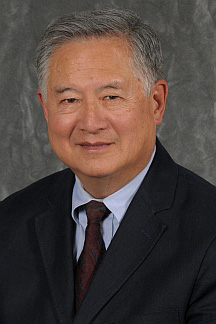 Dr. Benjamin Chu received his B.S. degree, magna cum laude from St. Norbert College (1955) and his
Ph.D., from Cornell University (1959). At the University of Kansas, he served as
Assistant Professor of Chemistry (1962-1965) and Associate Professor of Chemistry
(1965-1968). At the State University of New York at Stony Brook, he served as Chairman
of the Department of Chemistry (1978-1985), Professor of Chemistry (1968-1988), Professor
of Materials Science and Engineering (1982-1992), Leading Professor of Chemistry (1988-Present)
and Distinguished Professor (1992-Present). Dr. Chu has been awarded the Alfred P.
Sloan Research Fellow (1966-1968), John Simon Guggenheim Fellow (1968-1969), Humboldt
Award for Senior U.S. Scientists (1976-1977, 1992-1993), American Physical Society
Fellow, American Institute of Chemists Fellow, High Polymer Physics Prize of the American
Physical Society (1993), Langmuir Distinguished Lecturer Award, Division of Colloid
and Surface Chemistry of the American Chemical Society (1994), Award for Distinguished
Service in Advancement of Polymer Science by the Society of Polymer Science, Japan
(1997), Gutenberg Lecture Award, Johannes Gutenberg University (2007), and National
Academy of Inventors Fellow (2013). He is an Honorary Member of the Society of Polymer
Science, Japan (2008). Dr. Chu has 650 publications, 41 patents/patent applications
and written 6 books. His research is focused on environmental problems, especially
those related to water and air.
Dr. Benjamin Chu received his B.S. degree, magna cum laude from St. Norbert College (1955) and his
Ph.D., from Cornell University (1959). At the University of Kansas, he served as
Assistant Professor of Chemistry (1962-1965) and Associate Professor of Chemistry
(1965-1968). At the State University of New York at Stony Brook, he served as Chairman
of the Department of Chemistry (1978-1985), Professor of Chemistry (1968-1988), Professor
of Materials Science and Engineering (1982-1992), Leading Professor of Chemistry (1988-Present)
and Distinguished Professor (1992-Present). Dr. Chu has been awarded the Alfred P.
Sloan Research Fellow (1966-1968), John Simon Guggenheim Fellow (1968-1969), Humboldt
Award for Senior U.S. Scientists (1976-1977, 1992-1993), American Physical Society
Fellow, American Institute of Chemists Fellow, High Polymer Physics Prize of the American
Physical Society (1993), Langmuir Distinguished Lecturer Award, Division of Colloid
and Surface Chemistry of the American Chemical Society (1994), Award for Distinguished
Service in Advancement of Polymer Science by the Society of Polymer Science, Japan
(1997), Gutenberg Lecture Award, Johannes Gutenberg University (2007), and National
Academy of Inventors Fellow (2013). He is an Honorary Member of the Society of Polymer
Science, Japan (2008). Dr. Chu has 650 publications, 41 patents/patent applications
and written 6 books. His research is focused on environmental problems, especially
those related to water and air.
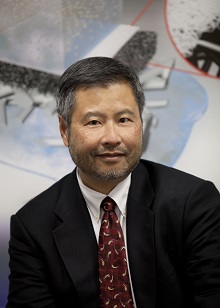 Dr. Benjamin S. Hsiao received his B.S. degree from National Taiwan University, Ph.D. from the University
of Connecticut, and post-doctorate training at the University of Massachusetts. He
joined the DuPont Company as a staff scientist and spent 8 years in R&D before coming
to Stony Brook University. He served as Chair of the Chemistry Department and as Vice
President for Research at Stony Brook University. Currently, Hsiao is a Founding Co-Director
of Innovative Global Energy Solutions Center, aiming to prototype ‘sustainability
for off-grid communities of tomorrow’, using the Turkana Basin Institute in northern
Kenya as a living laboratory. He is also the Director of Center for Advanced Technology
in Integrated Electric Energy Systems, with the mission to enhance the development
and integration of advanced technologies into electric energy systems on multiple
scales. Hsiao has a distinguished reputation in polymer science, and his research
interests are mainly focused on the development of sustainable nanostructured materials
for enengy and water pufication applications. He was elected as Fellow of American
Association for the Advancement of Science, Fellow of American Chemical Society, Fellow
of the American Physical Society, Fellow of Materials Research Society, Fellow of
National Academy of Inventors, and received SUNY Distinguished Professor, Honorary
Professor from University of Queensland in Australia, Chang-Jiang Scholar from Education
Ministry of China, Co-operative Research Award from Division of Polymeric Materials
Science and Engineering of American Chemical Society, NSF Special Creativity Award
and DuPont Young Faculty Award.
Dr. Benjamin S. Hsiao received his B.S. degree from National Taiwan University, Ph.D. from the University
of Connecticut, and post-doctorate training at the University of Massachusetts. He
joined the DuPont Company as a staff scientist and spent 8 years in R&D before coming
to Stony Brook University. He served as Chair of the Chemistry Department and as Vice
President for Research at Stony Brook University. Currently, Hsiao is a Founding Co-Director
of Innovative Global Energy Solutions Center, aiming to prototype ‘sustainability
for off-grid communities of tomorrow’, using the Turkana Basin Institute in northern
Kenya as a living laboratory. He is also the Director of Center for Advanced Technology
in Integrated Electric Energy Systems, with the mission to enhance the development
and integration of advanced technologies into electric energy systems on multiple
scales. Hsiao has a distinguished reputation in polymer science, and his research
interests are mainly focused on the development of sustainable nanostructured materials
for enengy and water pufication applications. He was elected as Fellow of American
Association for the Advancement of Science, Fellow of American Chemical Society, Fellow
of the American Physical Society, Fellow of Materials Research Society, Fellow of
National Academy of Inventors, and received SUNY Distinguished Professor, Honorary
Professor from University of Queensland in Australia, Chang-Jiang Scholar from Education
Ministry of China, Co-operative Research Award from Division of Polymeric Materials
Science and Engineering of American Chemical Society, NSF Special Creativity Award
and DuPont Young Faculty Award.
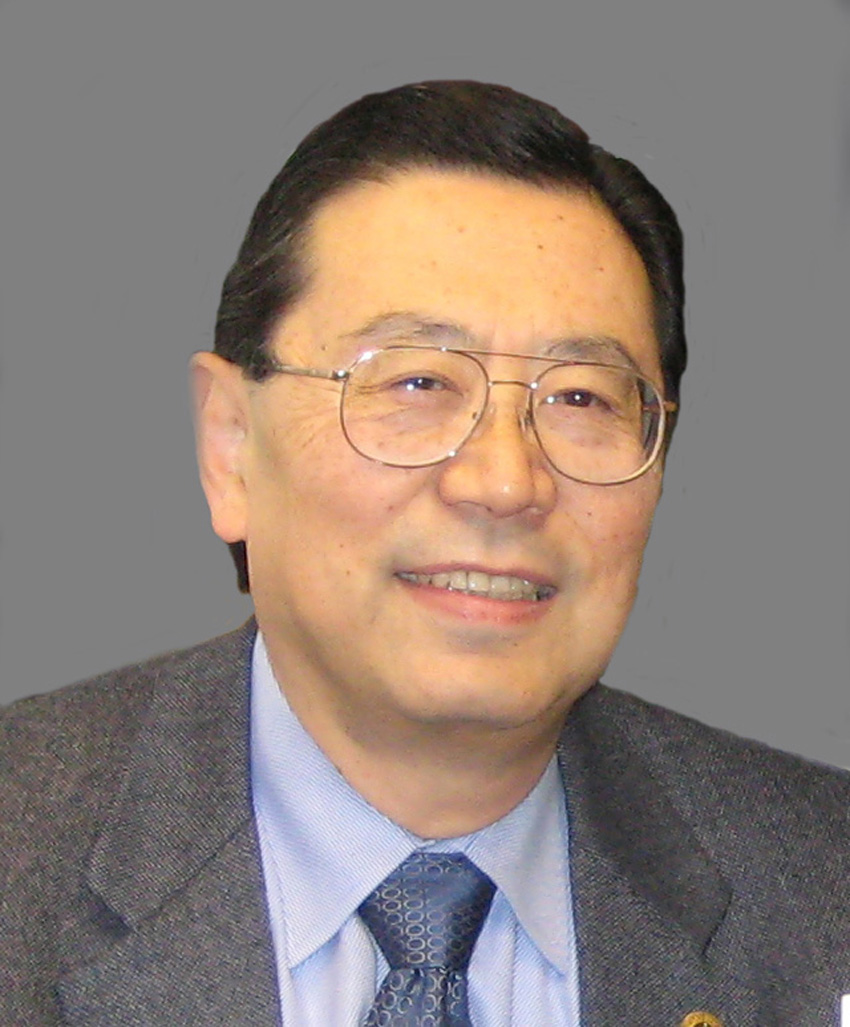 Dr. Iwao Ojima received his B.S., M.S., and Ph.D. (1973) degrees from the University of Tokyo, Japan.
He joined the Sagami Institute of Chemical Research and held a position of Senior
Research Fellow until 1983. He joined the faculty in the Department of Chemistry,
State University of New York at Stony Brook first as Associate Professor (1983), was
promoted to Professor (1984), Leading Professor (1991), and then to Distinguished
Professor (1995). He served as the Department Chairman from 1997 to 2003. He has been
serving as the founding Director for the Institute of Chemical Biology and Drug Discovery
(ICB&DD) from 2003. He has a wide range of research interests in synthetic organic
and medicinal chemistry as well as chemical biology, including discovery and development
of anticancer agents and antimicrobials, targeted drug delivery, catalytic methodologies
and asymmetric synthesis. His awards and honors include Arthur C. Cope Scholar Award
(1994), E. B. Hershberg Award for Important Discoveries of Medicinally Active Substances
(2001), the Medicinal Chemistry Hall of Fame (2006), ACS Award for Creative Work in
Fluorine Chemistry (2013) from the American Chemical Society; the Chemical Society
of Japan Award (1999); Outstanding Inventor Award (2002) from the Research Foundation
of the State University of New York; Elected Fellow of J. S. Guggenheim Memorial Foundation,
the American Association for the Advancement of Science, the New York Academy of
Sciences, the American Chemical Society and the National Academy of Inventors.
Dr. Iwao Ojima received his B.S., M.S., and Ph.D. (1973) degrees from the University of Tokyo, Japan.
He joined the Sagami Institute of Chemical Research and held a position of Senior
Research Fellow until 1983. He joined the faculty in the Department of Chemistry,
State University of New York at Stony Brook first as Associate Professor (1983), was
promoted to Professor (1984), Leading Professor (1991), and then to Distinguished
Professor (1995). He served as the Department Chairman from 1997 to 2003. He has been
serving as the founding Director for the Institute of Chemical Biology and Drug Discovery
(ICB&DD) from 2003. He has a wide range of research interests in synthetic organic
and medicinal chemistry as well as chemical biology, including discovery and development
of anticancer agents and antimicrobials, targeted drug delivery, catalytic methodologies
and asymmetric synthesis. His awards and honors include Arthur C. Cope Scholar Award
(1994), E. B. Hershberg Award for Important Discoveries of Medicinally Active Substances
(2001), the Medicinal Chemistry Hall of Fame (2006), ACS Award for Creative Work in
Fluorine Chemistry (2013) from the American Chemical Society; the Chemical Society
of Japan Award (1999); Outstanding Inventor Award (2002) from the Research Foundation
of the State University of New York; Elected Fellow of J. S. Guggenheim Memorial Foundation,
the American Association for the Advancement of Science, the New York Academy of
Sciences, the American Chemical Society and the National Academy of Inventors.
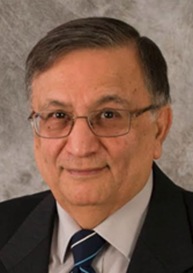 Dr. Jahangir Rastegar received his B.S. from SMU in 1969 and his M.S. and Ph.D. Degrees from the Mechanical
Engineering Department of Stanford University in 1972 and 1977. He then joined the
General Engineering and Bioengineering faculty at the University of Illinois at Urbana-Champaign.
He then worked five years in engineering firms designing machinery for the steel industry.
In 1987, he joined the Mechanical Engineering Department at SUNY at Stony Brook. His
current research interests include the optimal design of structures for machinery
and devices, kinematics, dynamics, biomechanics, vibration and control as related
to high speed and precision machinery and robotics, passive and active vibration isolation
and damping, the development of smart materials based actuators and systems, sensor
and actuation devices. He is a co-founder of Omnitek Partners, LLC. He has published
over 240 journal and conference papers. He is former Associate Editor of the ASME
Journal of Mechanical Design for Mechanisms and Robotics and Associate Editor of the
ASME Journal of Medical Devices. He has 187 U. S. and seven foreign patents issued
and over 90 pending. He is a Fellow of the American Society of Mechanical Engineers
(ASME). He is the recipient of the American Society of Mechanical Engineers (ASME)
“2010 Machine Design Award,” for “eminent achievements as an inventor and scholar
in the field of machine design, particularly in the area of smart actuation and control.”
He is a fellow of the National Academy of Inventors.
Dr. Jahangir Rastegar received his B.S. from SMU in 1969 and his M.S. and Ph.D. Degrees from the Mechanical
Engineering Department of Stanford University in 1972 and 1977. He then joined the
General Engineering and Bioengineering faculty at the University of Illinois at Urbana-Champaign.
He then worked five years in engineering firms designing machinery for the steel industry.
In 1987, he joined the Mechanical Engineering Department at SUNY at Stony Brook. His
current research interests include the optimal design of structures for machinery
and devices, kinematics, dynamics, biomechanics, vibration and control as related
to high speed and precision machinery and robotics, passive and active vibration isolation
and damping, the development of smart materials based actuators and systems, sensor
and actuation devices. He is a co-founder of Omnitek Partners, LLC. He has published
over 240 journal and conference papers. He is former Associate Editor of the ASME
Journal of Mechanical Design for Mechanisms and Robotics and Associate Editor of the
ASME Journal of Medical Devices. He has 187 U. S. and seven foreign patents issued
and over 90 pending. He is a Fellow of the American Society of Mechanical Engineers
(ASME). He is the recipient of the American Society of Mechanical Engineers (ASME)
“2010 Machine Design Award,” for “eminent achievements as an inventor and scholar
in the field of machine design, particularly in the area of smart actuation and control.”
He is a fellow of the National Academy of Inventors.
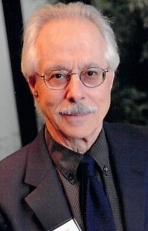 Dr. Lorne Golub received his D.M.D. (1963) and M.Sc. degrees (1965) from the University of Manitoba,
Canada. With support from the National Research and Medical Research Councils (Canada),
he completed his clinical specialty training (Periodontics) at the Harvard School
of Dental Medicine, with additional research training at the Mass. Gen. Hospital,
Harvard Medical School (1968). He returned to Manitoba to co-develop the first specialty
training program (Periodontics) combined with a Ph.D. in Oral Biology. He was a founding
member of the faculty when the SUNY Stony Brook School of Dental Medicine opened in
1973. He was promoted to Professor in 1977, and SUNY Distinguished Professor in 2003.
He served as Associate Dean for Research (1993-2003) and Interim-Dean of the Dental
School (2008-2009). In 2006, his research was highlighted in “Technology Transfer
Stories - - 25 Innovations that Changed the World.” AUTM, The Better World Report,
Ch.24. He has generated innovations on matrix-metalloproteinases and their therapeutic
inhibition by inventing FDA (and internationally)-approved novel NON-antibiotic tetracycline
formulations as inhibitors of collagenolysis during a variety of oral and systemic
diseases (periodontitis, arthritis, cancer, diabetes, heart and lung diseases). More
recently, he, and his Dept. of Chemistry colleague, developed and patented novel chemically-modified
curcumins as pleiotropic MMP-inhibitors. He holds 55 U.S. and 104 international patents
which were licensed to and marketed by several corporations and is scientific co-founder
of two start-up companies. He has published more than 300 scientific articles .
Dr. Lorne Golub received his D.M.D. (1963) and M.Sc. degrees (1965) from the University of Manitoba,
Canada. With support from the National Research and Medical Research Councils (Canada),
he completed his clinical specialty training (Periodontics) at the Harvard School
of Dental Medicine, with additional research training at the Mass. Gen. Hospital,
Harvard Medical School (1968). He returned to Manitoba to co-develop the first specialty
training program (Periodontics) combined with a Ph.D. in Oral Biology. He was a founding
member of the faculty when the SUNY Stony Brook School of Dental Medicine opened in
1973. He was promoted to Professor in 1977, and SUNY Distinguished Professor in 2003.
He served as Associate Dean for Research (1993-2003) and Interim-Dean of the Dental
School (2008-2009). In 2006, his research was highlighted in “Technology Transfer
Stories - - 25 Innovations that Changed the World.” AUTM, The Better World Report,
Ch.24. He has generated innovations on matrix-metalloproteinases and their therapeutic
inhibition by inventing FDA (and internationally)-approved novel NON-antibiotic tetracycline
formulations as inhibitors of collagenolysis during a variety of oral and systemic
diseases (periodontitis, arthritis, cancer, diabetes, heart and lung diseases). More
recently, he, and his Dept. of Chemistry colleague, developed and patented novel chemically-modified
curcumins as pleiotropic MMP-inhibitors. He holds 55 U.S. and 104 international patents
which were licensed to and marketed by several corporations and is scientific co-founder
of two start-up companies. He has published more than 300 scientific articles .
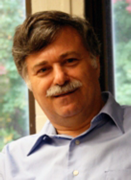 Dr. Arie Kaufman received his B.S. in Mathematics and Physics from the Hebrew University of Jerusalem,
M.S, in Computer Science from the Wiezmann Institute of Science, Israel, and a Ph.D.
in Computer Science from Ben-Gurion University, Israel. He is a Distinguished Professor
of Computer Science and Radiology, the Director of the Center of Visual Computing
(CVC), the Chief Scientist of the Center of Excellence in Wireless and Information
Technology (CEWIT) at Stony Brook University (SBU). He joined the faculty at SBU in
1985 and served as Chair of Computer Science for 18 years (1999-2017). He also held
posts at the Hebrew University, Tel-Aviv University, Florida International University,
Ben-Gurion University, Columbia University and Harvard University. Dr. Kaufman is
most well-known for developing virtual colonoscopy for colon cancer screening that
has been licensed, FDA approved and commercialized; the Cube hardware for real-time
volume rendering that has been licensed and commercialized, enabling 3D medical imaging
on PCs; and the Reality Deck, the largest resolution immersive visualization facility,
enabling visual analytics of big data. He received the prestigious IEEE Visualization
Career Award and was inducted into the LI Technology Hall of Fame. He holds 99 patents,
52 of which have been licensed to 9 companies. He is the co-founder of Viatronix,
Inc. He has published in excess of 330 refereed papers/books/chapters, and more than
300 conference presentations, and was the founding Editor-in-Chief of IEEE Transaction
on Visualization and Computer Graphics (TVCG), 1995-98. He is a member of the European
Academy of Sciences, IEEE Fellow, ACM Fellow, and NAI Fellow.
Dr. Arie Kaufman received his B.S. in Mathematics and Physics from the Hebrew University of Jerusalem,
M.S, in Computer Science from the Wiezmann Institute of Science, Israel, and a Ph.D.
in Computer Science from Ben-Gurion University, Israel. He is a Distinguished Professor
of Computer Science and Radiology, the Director of the Center of Visual Computing
(CVC), the Chief Scientist of the Center of Excellence in Wireless and Information
Technology (CEWIT) at Stony Brook University (SBU). He joined the faculty at SBU in
1985 and served as Chair of Computer Science for 18 years (1999-2017). He also held
posts at the Hebrew University, Tel-Aviv University, Florida International University,
Ben-Gurion University, Columbia University and Harvard University. Dr. Kaufman is
most well-known for developing virtual colonoscopy for colon cancer screening that
has been licensed, FDA approved and commercialized; the Cube hardware for real-time
volume rendering that has been licensed and commercialized, enabling 3D medical imaging
on PCs; and the Reality Deck, the largest resolution immersive visualization facility,
enabling visual analytics of big data. He received the prestigious IEEE Visualization
Career Award and was inducted into the LI Technology Hall of Fame. He holds 99 patents,
52 of which have been licensed to 9 companies. He is the co-founder of Viatronix,
Inc. He has published in excess of 330 refereed papers/books/chapters, and more than
300 conference presentations, and was the founding Editor-in-Chief of IEEE Transaction
on Visualization and Computer Graphics (TVCG), 1995-98. He is a member of the European
Academy of Sciences, IEEE Fellow, ACM Fellow, and NAI Fellow.
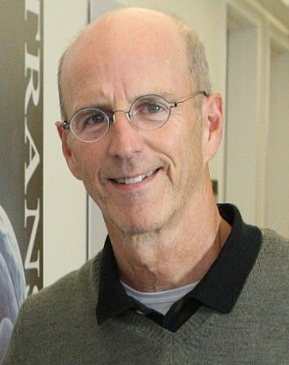 Dr. Clinton Rubin is a SUNY Distinguished Professor of Biomedical Engineering, and Director of the Center
for Biotechnology at Stony Brook University in Stony Brook, New York. Rubin’s research
is targeted towards understanding the cellular mechanisms responsible for the growth,
healing, and homeostasis of bone, and how mechanical stimuli mediate these responses
through the control of mesenchymal and hematopoietic stem cell differentiation and
proliferation, to establish non-drug treatment strategies for osteoporosis, obesity
and diabetes. Dr. Rubin holds ~30 patents in the area of wound repair, stem cell
regulation, and treatment of metabolic disease, and is a founder of Exogen, Juvent,
and Marodyne Medical, which use physical signals to regulate biologic processes.
He has published over 300 articles, has been cited ~24,000 times, with an H-index
of 80. He is a fellow of AAAS and AIMBE, and a recipient of the Presidential Young
Investigator Award from the NSF.
Dr. Clinton Rubin is a SUNY Distinguished Professor of Biomedical Engineering, and Director of the Center
for Biotechnology at Stony Brook University in Stony Brook, New York. Rubin’s research
is targeted towards understanding the cellular mechanisms responsible for the growth,
healing, and homeostasis of bone, and how mechanical stimuli mediate these responses
through the control of mesenchymal and hematopoietic stem cell differentiation and
proliferation, to establish non-drug treatment strategies for osteoporosis, obesity
and diabetes. Dr. Rubin holds ~30 patents in the area of wound repair, stem cell
regulation, and treatment of metabolic disease, and is a founder of Exogen, Juvent,
and Marodyne Medical, which use physical signals to regulate biologic processes.
He has published over 300 articles, has been cited ~24,000 times, with an H-index
of 80. He is a fellow of AAAS and AIMBE, and a recipient of the Presidential Young
Investigator Award from the NSF.
Dr. Kenneth Kaushansky is a physician-scientist specializing in hematology, is known internationally for
his seminal research on the molecular biology of 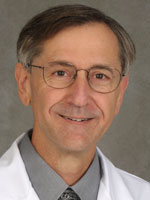 blood cell production. He began his clinical and research career at the University
of Washington, where he rose to become Section Chief of Hematology and received several
NIH grants. While at the University of Washington, and subsequently at the University
of California, San Diego, Dr. Kaushansky and his research team cloned several of the
genes important in the growth of differentiation of blood cells, including thrombopoietin,
a key regulator of stem cell and platelet production. He and colleagues then established
that thrombopoietin exerts a profound influence on hematopoietic stem cells and affects
the expression of a number of transcription factors that influence stem cell fate
decisions. This work also led to a better understanding of the pathobiology of several
congenital disorders of platelet and stem cell production. Prior to coming to Stony Brook in 2010, Dr. Kaushansky was the Helen M. Ranney Professor
and Chair of the Department of Medicine at the University of California, San Diego
School of Medicine, where he grew the department’s research, educational and clinical
impact. During his tenure at Stony Brook thus far, Dr. Kaushansky has spearheaded the expansion
of academic programs and training within the School of Medicine and Health Sciences
and has overseen the development of the Medical and Research Translation (MART) Building. With its opening next month, the MART will serve as an incubator for new
approaches to understanding the causes for, and treatments of cancer, using sophisticated
imaging and informatics, work that is expected to lead to many more Stony Brook Medicine
inventions.
blood cell production. He began his clinical and research career at the University
of Washington, where he rose to become Section Chief of Hematology and received several
NIH grants. While at the University of Washington, and subsequently at the University
of California, San Diego, Dr. Kaushansky and his research team cloned several of the
genes important in the growth of differentiation of blood cells, including thrombopoietin,
a key regulator of stem cell and platelet production. He and colleagues then established
that thrombopoietin exerts a profound influence on hematopoietic stem cells and affects
the expression of a number of transcription factors that influence stem cell fate
decisions. This work also led to a better understanding of the pathobiology of several
congenital disorders of platelet and stem cell production. Prior to coming to Stony Brook in 2010, Dr. Kaushansky was the Helen M. Ranney Professor
and Chair of the Department of Medicine at the University of California, San Diego
School of Medicine, where he grew the department’s research, educational and clinical
impact. During his tenure at Stony Brook thus far, Dr. Kaushansky has spearheaded the expansion
of academic programs and training within the School of Medicine and Health Sciences
and has overseen the development of the Medical and Research Translation (MART) Building. With its opening next month, the MART will serve as an incubator for new
approaches to understanding the causes for, and treatments of cancer, using sophisticated
imaging and informatics, work that is expected to lead to many more Stony Brook Medicine
inventions.
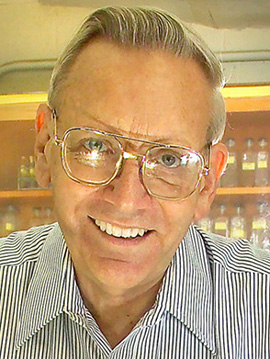 Dr. F. William Studier earned a B.S. in biophysics from Yale in 1958, followed by a Ph.D. from the California
Institute of Technology in 1963. He worked as a postdoctoral fellow in the Department
of Biochemistry at Stanford University School of Medicine, and then joined Brookhaven
Lab’s Biology Department in 1964 as an assistant biophysicist. Over the years, Studier
rose through the department’s ranks, receiving tenure in 1971 and becoming a tenured
senior biophysicist in 1974. He served as chair of the Biology Department from 1990
to 1999 and then returned to research. His achievements have been recognized by election
to the American Academy of Arts and Sciences in 1990, the National Academy of Sciences
in 1992, and as a Fellow of the American Association for the Advancement of Science
in 2007. Retired from Brookhaven Lab in 2015, he retains the title of Senior Scientist
Emeritus. He holds 15 patents of which 9 patents have been licensed and commercialized, including those on the T7 system, currently the most successful
Brookhaven Lab technology invented .
Dr. F. William Studier earned a B.S. in biophysics from Yale in 1958, followed by a Ph.D. from the California
Institute of Technology in 1963. He worked as a postdoctoral fellow in the Department
of Biochemistry at Stanford University School of Medicine, and then joined Brookhaven
Lab’s Biology Department in 1964 as an assistant biophysicist. Over the years, Studier
rose through the department’s ranks, receiving tenure in 1971 and becoming a tenured
senior biophysicist in 1974. He served as chair of the Biology Department from 1990
to 1999 and then returned to research. His achievements have been recognized by election
to the American Academy of Arts and Sciences in 1990, the National Academy of Sciences
in 1992, and as a Fellow of the American Association for the Advancement of Science
in 2007. Retired from Brookhaven Lab in 2015, he retains the title of Senior Scientist
Emeritus. He holds 15 patents of which 9 patents have been licensed and commercialized, including those on the T7 system, currently the most successful
Brookhaven Lab technology invented .
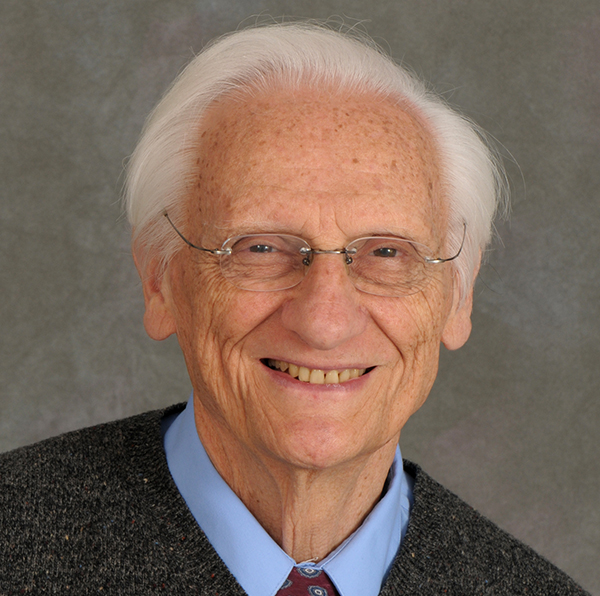 Dr. Israel Kleinberg earned his Doctor of Dental Surgery degree from the University of Toronto and his
Doctor of Philosophy degree from the University of Durham. Dr. Kleinberg founded Stony Brook School of Dental Medicine’s Department of Oral Biology and Pathology.
Dr. Kleinberg’s devotion to discovery has informed and inspired his immense success
which includes over 300 scientific publications, over 60 years of continuous research
funding, and the issuance of 21 patents and numerous foreign patents. Dr. Kleinberg’s
countless accolades include the William J. Gies Award for Vision, Innovation and Achievement
of the ADEA Gies Foundation, ADEA, and Outstanding Inventor Award, State University
of New York. Through innovative translational research and pioneering partnerships
across the field of oral biology, Dr. Kleinberg developed and helped bring to market
multiple products with the potential for the enhancement of human health and wellbeing.
Of note, his inventions include Smartmouth™ Mouthwash and BasicBites® soft chews,
both dentifrice products purchased by Colgate®, and the Ortek Electronic Caries Detector,
an FDA-approved device for the early detection of caries.
Dr. Israel Kleinberg earned his Doctor of Dental Surgery degree from the University of Toronto and his
Doctor of Philosophy degree from the University of Durham. Dr. Kleinberg founded Stony Brook School of Dental Medicine’s Department of Oral Biology and Pathology.
Dr. Kleinberg’s devotion to discovery has informed and inspired his immense success
which includes over 300 scientific publications, over 60 years of continuous research
funding, and the issuance of 21 patents and numerous foreign patents. Dr. Kleinberg’s
countless accolades include the William J. Gies Award for Vision, Innovation and Achievement
of the ADEA Gies Foundation, ADEA, and Outstanding Inventor Award, State University
of New York. Through innovative translational research and pioneering partnerships
across the field of oral biology, Dr. Kleinberg developed and helped bring to market
multiple products with the potential for the enhancement of human health and wellbeing.
Of note, his inventions include Smartmouth™ Mouthwash and BasicBites® soft chews,
both dentifrice products purchased by Colgate®, and the Ortek Electronic Caries Detector,
an FDA-approved device for the early detection of caries.
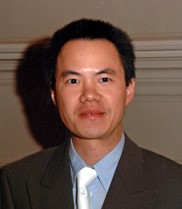 Dr. Stanislaus Wong earned a B.Sc. in Chemistry from McGill University, Canada in 1994 followed by an
A.M. in Chemistry from Harvard University in 1996. He earned a Ph.D. degree in Chemistry
from Harvard University in 1999. He worked as a postdoctoral fellow in the Department
of Chemistry at Columbia University. He then joined the Department of Chemistry at
Stony Brook University as an Assistant Professor in 2000 with a joint appointment
with Brookhaven National Laboratory in the Condensed Matter Physics & Materials Sciences
Division (9/1/2000 - 8/31/2017). He is currently a full Professor in the Department
of Chemistry. Dr. Wong’s work is characterized by impressive productivity and creativity.
His inventions in the functionalization of carbon nanotubes, the synthesis of new
multi-metallic metal oxide nanostructures, and the preparation of metal nanowires
have enabled delivery of tailored ‘nano’ materials useful in energy storage, solar
energy harvesting, catalysis, magnetism, and medical diagnostics and to further the
development of innovative carbon nanotube enhanced products in industries such as
aerospace, automotive, industrial, marine, and sports. Dr. Wong is a fellow of the
American Association for the Advancement of Science and the Royal Society of Chemistry,
Dr. Wong has received the American Chemical Society Inorganic Award, a Sloan Fellowship,
the Buck-Whitney Award, and a National Science Foundation CAREER Award. In 2018 SUNY
granted him the SUNY Chancellor’s Award for Excellence in Scholarship and Creative
Activities and in 2019, he was named a SUNY Distinguished Professor.
Dr. Stanislaus Wong earned a B.Sc. in Chemistry from McGill University, Canada in 1994 followed by an
A.M. in Chemistry from Harvard University in 1996. He earned a Ph.D. degree in Chemistry
from Harvard University in 1999. He worked as a postdoctoral fellow in the Department
of Chemistry at Columbia University. He then joined the Department of Chemistry at
Stony Brook University as an Assistant Professor in 2000 with a joint appointment
with Brookhaven National Laboratory in the Condensed Matter Physics & Materials Sciences
Division (9/1/2000 - 8/31/2017). He is currently a full Professor in the Department
of Chemistry. Dr. Wong’s work is characterized by impressive productivity and creativity.
His inventions in the functionalization of carbon nanotubes, the synthesis of new
multi-metallic metal oxide nanostructures, and the preparation of metal nanowires
have enabled delivery of tailored ‘nano’ materials useful in energy storage, solar
energy harvesting, catalysis, magnetism, and medical diagnostics and to further the
development of innovative carbon nanotube enhanced products in industries such as
aerospace, automotive, industrial, marine, and sports. Dr. Wong is a fellow of the
American Association for the Advancement of Science and the Royal Society of Chemistry,
Dr. Wong has received the American Chemical Society Inorganic Award, a Sloan Fellowship,
the Buck-Whitney Award, and a National Science Foundation CAREER Award. In 2018 SUNY
granted him the SUNY Chancellor’s Award for Excellence in Scholarship and Creative
Activities and in 2019, he was named a SUNY Distinguished Professor.
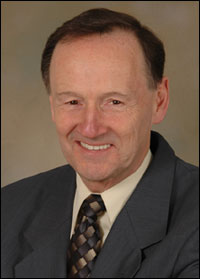 Dr. Craig Lehmann is a registered clinical chemist and a Fellow in the National Academy of Clinical
Biochemistry. He is also Dean of the School of Health Technology and Management at
Stony Brook University. As Dean and Professor, Dr. Lehmann leads Undergraduate and
Graduate Programs for Clinical Laboratory Sciences; Respiratory Care; Physician Assistant;
Cytotechnology; Occupational Therapy; Physical Therapy; Health Sciences and Healthcare
Policy and Management. Under his direction, the School of Health Technology and Management
is now the largest of all of the health professions schools at Stony Brook University.
For the past several years, Dr. Lehmann has participated in national and international
conferences, lecturing on emerging technologies that improve the aging experience.
Dr. Lehmann presented at Capitol Hill in Washington, D.C., where he led President
Bush’s Advisor for Science and Technology in discussions that focused on the benefits
of e-technology and the major disease states suited for application; principally,
diabetes, cardiovascular disease and congestive heart failure. To that end, he invented
a medication management device that assists clients and caregivers managing complex
medication regimens and may help reduce the $100-300 billion spent in the U.S. each
year for medication non-adherence issues. Dr. Lehmann has also served as a United States delegate for the American Society
for Clinical Laboratory Sciences at three world congresses in Holland, Sweden, and
Australia. He is the recipient of many awards including the “Outstanding Contributions
in Education Award from the American Association for Clinical Chemistry, and the Stony
Brook University Provost's Award for "Exceptional Service to Undergraduate Education"
at Stony Brook University.
Dr. Craig Lehmann is a registered clinical chemist and a Fellow in the National Academy of Clinical
Biochemistry. He is also Dean of the School of Health Technology and Management at
Stony Brook University. As Dean and Professor, Dr. Lehmann leads Undergraduate and
Graduate Programs for Clinical Laboratory Sciences; Respiratory Care; Physician Assistant;
Cytotechnology; Occupational Therapy; Physical Therapy; Health Sciences and Healthcare
Policy and Management. Under his direction, the School of Health Technology and Management
is now the largest of all of the health professions schools at Stony Brook University.
For the past several years, Dr. Lehmann has participated in national and international
conferences, lecturing on emerging technologies that improve the aging experience.
Dr. Lehmann presented at Capitol Hill in Washington, D.C., where he led President
Bush’s Advisor for Science and Technology in discussions that focused on the benefits
of e-technology and the major disease states suited for application; principally,
diabetes, cardiovascular disease and congestive heart failure. To that end, he invented
a medication management device that assists clients and caregivers managing complex
medication regimens and may help reduce the $100-300 billion spent in the U.S. each
year for medication non-adherence issues. Dr. Lehmann has also served as a United States delegate for the American Society
for Clinical Laboratory Sciences at three world congresses in Holland, Sweden, and
Australia. He is the recipient of many awards including the “Outstanding Contributions
in Education Award from the American Association for Clinical Chemistry, and the Stony
Brook University Provost's Award for "Exceptional Service to Undergraduate Education"
at Stony Brook University.
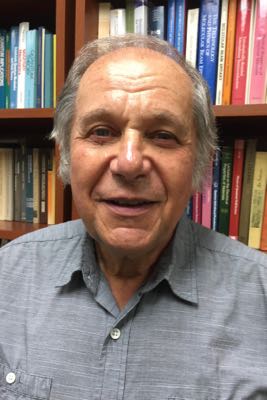 Dr. Serge Luryi is a Distinguished Professor of the SBU department of Electrical and Computer Engineering.
He is also a Fellow of the American Physical Society, and a Fellow of the Optical
Society of America. Dr. Luryi joined the faculty of Stony Brook University in 1994.
From 1994 to 2016 he served as Chair of the Department of Electrical and Computer
Engineering. Since 1998, he has been the Founding Director of the New York State Center
for Advanced Technology in Sensor Systems (Sensor CAT). The Sensor CAT was driven
by needs of New York State industries that develop, manufacture, or employ sensors
and supported science-based start-ups, especially those connected with university
research. This support included universal modern prototyping facilities, assistance
by the CAT’s Entrepreneur-in-Residence, and the CAT’s connections with the New York
investment community. The Sensor CAT has developed an “All in One” Electrical Engineering
Educational Kit, including laboratories, which allowed Stony Brook University to become
the first research institution to offer a Bachelor of Science in Electrical Engineering
online degree. Most of this activity was based on the patented inventions of Dr.
Luryi and his associates in such diverse sensor-related fields as DNA sequencing and
high-energy radiation detection. A preeminent research scientist, Dr. Luryi was
elected to the Fellow of the IEEE for contributions in the field of heterojunction devices, Fellow of the American Physical Society for theory of electron transport in low-dimensional systems and invention of novel
electron devices, and Fellow of the Optical Society of America for outstanding and pioneering contributions to semiconductor optoelectronics, especially
to the physics and photonic applications of low-dimensional semiconductor structures . In 2006, he received the IEEE Long Island Section's Papoulis Award for Excellence
in Engineering and Technology Education with the citation: " For pioneering contributions to include entrepreneurial skills in engineering education
on Long Island. " Dr. Luryi’s most impactful invention to industry and society is the endowment
of silicon chips with various capabilities, e.g. optoelectronics. In his impressive
career, Dr. Luryi has been a pioneer in semiconductor research and its commercial
application by translating research discoveries into new technologies.
Dr. Serge Luryi is a Distinguished Professor of the SBU department of Electrical and Computer Engineering.
He is also a Fellow of the American Physical Society, and a Fellow of the Optical
Society of America. Dr. Luryi joined the faculty of Stony Brook University in 1994.
From 1994 to 2016 he served as Chair of the Department of Electrical and Computer
Engineering. Since 1998, he has been the Founding Director of the New York State Center
for Advanced Technology in Sensor Systems (Sensor CAT). The Sensor CAT was driven
by needs of New York State industries that develop, manufacture, or employ sensors
and supported science-based start-ups, especially those connected with university
research. This support included universal modern prototyping facilities, assistance
by the CAT’s Entrepreneur-in-Residence, and the CAT’s connections with the New York
investment community. The Sensor CAT has developed an “All in One” Electrical Engineering
Educational Kit, including laboratories, which allowed Stony Brook University to become
the first research institution to offer a Bachelor of Science in Electrical Engineering
online degree. Most of this activity was based on the patented inventions of Dr.
Luryi and his associates in such diverse sensor-related fields as DNA sequencing and
high-energy radiation detection. A preeminent research scientist, Dr. Luryi was
elected to the Fellow of the IEEE for contributions in the field of heterojunction devices, Fellow of the American Physical Society for theory of electron transport in low-dimensional systems and invention of novel
electron devices, and Fellow of the Optical Society of America for outstanding and pioneering contributions to semiconductor optoelectronics, especially
to the physics and photonic applications of low-dimensional semiconductor structures . In 2006, he received the IEEE Long Island Section's Papoulis Award for Excellence
in Engineering and Technology Education with the citation: " For pioneering contributions to include entrepreneurial skills in engineering education
on Long Island. " Dr. Luryi’s most impactful invention to industry and society is the endowment
of silicon chips with various capabilities, e.g. optoelectronics. In his impressive
career, Dr. Luryi has been a pioneer in semiconductor research and its commercial
application by translating research discoveries into new technologies.
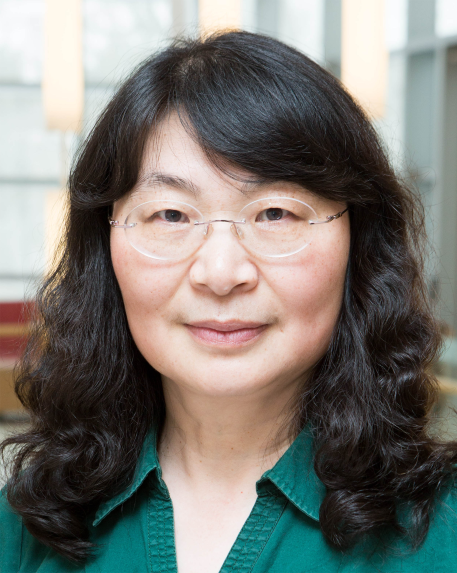 Dr. Yuanyuan Yang received her Ph.D. and M.S. degree in computer science from Johns Hopkins University.
She graduated from Tsinghua University in China and obtained her M.S. in computer
science and engineering and her B.Eng. in computer science and engineering. She is
currently a SUNY Distinguished Professor in the Department of Electrical & Computer
Engineering and Department of Computer Science at Stony Brook University, where she
joined in 1999. From 2018-2022, she served as a program director in the National Science
Foundation's Directorate of Computer and Information Science and Engineering. She
directed the core computer architecture program and was on the management team of
several cross-cutting programs. At Stony Brook, she served as the Associate Dean for
Diversity and Academic Affairs of College of Engineering and Applied Sciences from
2016-2018, a Division Director of New York State Center of Excellence in Wireless
and Information Technology (CEWIT) from 2007-2016 and the Graduate Program Director
of Electrical & Computer Engineering Department from 2001-2016. Prior to joining
Stony Brook in 1999, she held a tenured faculty position at University of Vermont.
Dr. Yang is internationally recognized for her contributions in parallel & distributed
computing systems and networking. She was named an IEE Fellow through Computer Society
in 2009 and in 2022 she won the Outstanding Service Award of the IEE Computer Society
Technical Committee on Distributed Processing. In over 30 years, Yuanyuan Yang has been credited with many breakthrough results
and innovative inventions in the field of interconnection networks. In particular,
her series of work on non-blocking Clos multicast networks has made foundational contributions
to the interconnection network field. Her seminal patents/papers on this work along
with subsequent work have opened up new areas of innovations and research in multicast
interconnection networks with direct applications to many today’s emerging areas,
such as voice/video switching, optical networking, parallel computer interconnecting
and data center networking. This series of work has been extensively cited and included
in many books on the subject that are widely used by researchers and teachers. Based
on the patented idea in her patent US 8,107,468, Media Global Links built "MD10000"
IP video router, which was adopted by a major Japanese broadcaster FUJI Television
Network in 2008. The video router has been running by FUJI for 14 years, generating
tremendous lasting impacts on quality of life, economic development, and the welfare
of society, and has been reported in multiple media channels.
Dr. Yuanyuan Yang received her Ph.D. and M.S. degree in computer science from Johns Hopkins University.
She graduated from Tsinghua University in China and obtained her M.S. in computer
science and engineering and her B.Eng. in computer science and engineering. She is
currently a SUNY Distinguished Professor in the Department of Electrical & Computer
Engineering and Department of Computer Science at Stony Brook University, where she
joined in 1999. From 2018-2022, she served as a program director in the National Science
Foundation's Directorate of Computer and Information Science and Engineering. She
directed the core computer architecture program and was on the management team of
several cross-cutting programs. At Stony Brook, she served as the Associate Dean for
Diversity and Academic Affairs of College of Engineering and Applied Sciences from
2016-2018, a Division Director of New York State Center of Excellence in Wireless
and Information Technology (CEWIT) from 2007-2016 and the Graduate Program Director
of Electrical & Computer Engineering Department from 2001-2016. Prior to joining
Stony Brook in 1999, she held a tenured faculty position at University of Vermont.
Dr. Yang is internationally recognized for her contributions in parallel & distributed
computing systems and networking. She was named an IEE Fellow through Computer Society
in 2009 and in 2022 she won the Outstanding Service Award of the IEE Computer Society
Technical Committee on Distributed Processing. In over 30 years, Yuanyuan Yang has been credited with many breakthrough results
and innovative inventions in the field of interconnection networks. In particular,
her series of work on non-blocking Clos multicast networks has made foundational contributions
to the interconnection network field. Her seminal patents/papers on this work along
with subsequent work have opened up new areas of innovations and research in multicast
interconnection networks with direct applications to many today’s emerging areas,
such as voice/video switching, optical networking, parallel computer interconnecting
and data center networking. This series of work has been extensively cited and included
in many books on the subject that are widely used by researchers and teachers. Based
on the patented idea in her patent US 8,107,468, Media Global Links built "MD10000"
IP video router, which was adopted by a major Japanese broadcaster FUJI Television
Network in 2008. The video router has been running by FUJI for 14 years, generating
tremendous lasting impacts on quality of life, economic development, and the welfare
of society, and has been reported in multiple media channels.
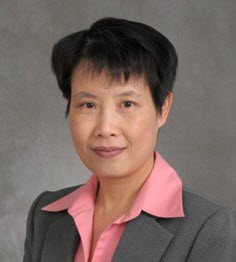 Dr. Wei Zhao received her BEng in Biomedical Engineering from Tsinghua University, and MSc and
PhD degrees in Medical Biophysics from the University of Toronto. She joined Stony
Brook University in 1999 as an Assistant Professor of Radiology . She was promoted
to Associate Professor and Professor in 2005 and 2012, respectively. Dr. Zhao is
a Professor in the Departments of Biomedical Engineering and Radiology at Stony Brook
University Renaissance School of Medicine. She is currently serving as the Vice Chair
of Research for Radiology and the Program Leader for the Imaging, Biomarker Discovery
and Engineering Sciences (IBES) research program of the Stony Brook Cancer Center
(SBCC). She has served on the board of associate editors for Medical Physics, the
study sections of NIH, and as reviewer for major journals in medical imaging. She
has been working on the development and advanced clinical applications of large area
x-ray flat-panel imagers for more than 30 years. Her research is focused on: 1. Develop
amorphous selenium direct detection technology for digital breast tomosynthesis; 2.
Develop low dose image sensor using avalanche gain; 3. Investigate the intrinsic imaging
performance of structured scintillators and optimize detector design for cone-beam
computed tomography. She has authored 150 research articles and 5 book chapters. She
holds 87 patents/patent applications. Her research work has been funded by the NIH,
DOD CDMRP, Whitaker Foundation and industry. Her publications received the Sylvia
Fedoruk Prize (1996) and the Moses and Sylvia Sorkin Greenfield Award for Best Imaging
Physics paper in Medical Physics (2018). Dr. Zhao is a fellow of the SPIE and NAI.
Dr. Wei Zhao received her BEng in Biomedical Engineering from Tsinghua University, and MSc and
PhD degrees in Medical Biophysics from the University of Toronto. She joined Stony
Brook University in 1999 as an Assistant Professor of Radiology . She was promoted
to Associate Professor and Professor in 2005 and 2012, respectively. Dr. Zhao is
a Professor in the Departments of Biomedical Engineering and Radiology at Stony Brook
University Renaissance School of Medicine. She is currently serving as the Vice Chair
of Research for Radiology and the Program Leader for the Imaging, Biomarker Discovery
and Engineering Sciences (IBES) research program of the Stony Brook Cancer Center
(SBCC). She has served on the board of associate editors for Medical Physics, the
study sections of NIH, and as reviewer for major journals in medical imaging. She
has been working on the development and advanced clinical applications of large area
x-ray flat-panel imagers for more than 30 years. Her research is focused on: 1. Develop
amorphous selenium direct detection technology for digital breast tomosynthesis; 2.
Develop low dose image sensor using avalanche gain; 3. Investigate the intrinsic imaging
performance of structured scintillators and optimize detector design for cone-beam
computed tomography. She has authored 150 research articles and 5 book chapters. She
holds 87 patents/patent applications. Her research work has been funded by the NIH,
DOD CDMRP, Whitaker Foundation and industry. Her publications received the Sylvia
Fedoruk Prize (1996) and the Moses and Sylvia Sorkin Greenfield Award for Best Imaging
Physics paper in Medical Physics (2018). Dr. Zhao is a fellow of the SPIE and NAI.
